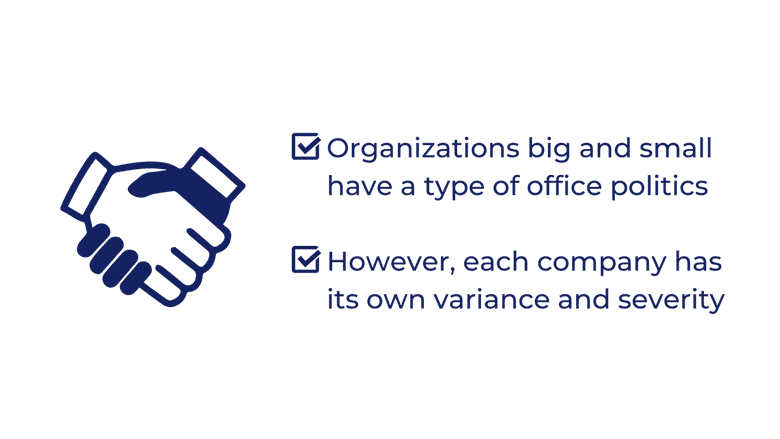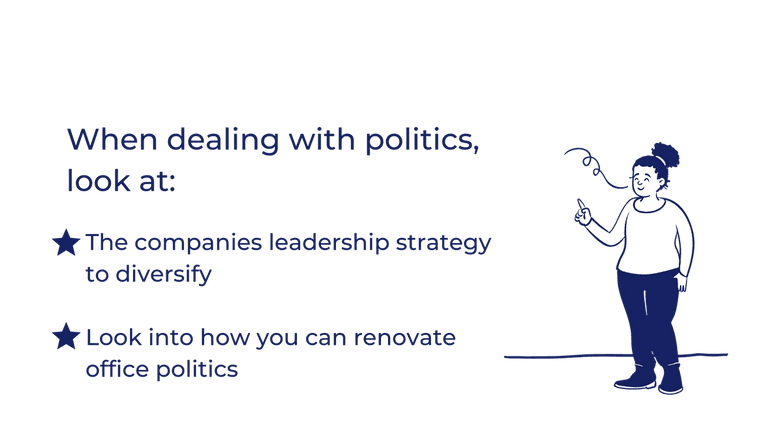“I’m going to do a boss move,” announced my manager, almost like she was going to step out for lunch. “Let’s discuss more in our meeting later.”
“Oh, OK,” I replied and politely smiled. I had never heard this phrase before and was confused as to what might be coming next.
I quickly turned back to my laptop to Google “boss move.” I scrolled through the search results looking for an obvious definition but nothing was making sense.
My mind then jumped to the conclusion that I must have done something wrong. Now we’d probably have to talk about a performance improvement plan, my anxiety said. To prepare, I raced through my list of what I was working on and my deliverables. Nothing had blown up and I really thought everything was going fine -- at least it was by me.
Everything became uncomfortably clear in our meeting. I was assured that I hadn’t done anything wrong. However, my boss would now take over a piece of business I negotiated and visit the client herself, not me. It was a setback, since I thought I owned the relationship.
But it was an early-stage startup after all and anything could happen at any time, even office politics.
The Game of Office Politics

What is office politics?
Whether you work for a startup or a FAANG, you’ll find office politics. In fact, office politics exist in all organizations. And, while there are many books and LinkedIn courses available on the subject, the vast majority of us haven't been trained to deal with office politics. It’s also important to note that even though you may not be physically in the office, working remotely may change but not eliminate your organization’s political landscape.
Interpersonal relationships are at the core of office politics. Dorie Clark more broadly states that
“office politics include being aware of interpersonal dynamics at work, and trying to accomplish things while keeping that reality in mind.”
Gossiping, flattering higher ups, and claiming credit for someone’s work are the most common activities associated with office politics, according to a survey by Robert Half. Further, office politics were ranked the number one cause of workplace stress this year in a Perkbox survey.
After the “boss move” experience, it was stressful and challenging to know when the next “boss move” might happen. I felt more insecure with my work and unmotivated. The competition also felt more intense between the differing agendas of the stakeholders at the startup.
How bad is it, really?
In addition, the media has reported extreme Silicon Valley office politics stories about backstabbing venture capitalists, manipulator CEO’s, and toxic culture - but it's not all bad and every workplace has their own flavor of politics. Organizations can have varying degrees of office politics according to Kathleen Kelley Reardon, which include pathologically, highly, moderately and minimally political.
To understand which level an organization is operating, it may take time, research, and close observation. By conducting informational interviews, reading employer reviews online, and undergoing the interview process, the level of politics may be apparent. For example, when I was told by a hiring manager that I would not be moving forward in a startup’s interview process, I moved on. However, when the CEO followed up with me a few days later and asked that I write the hiring manager to be put on a project, I knew this was a category of politics I didn’t feel comfortable participating in. I also didn’t think managing up in the interview process would help me look like a team player.
The rules and norms of office politics are constantly changing, just as individual organizations increase or decrease headcount. As long as there is scarcity and people must figure out how to work with each other, office politics will continue to exist to some extent.
How to Deal

Most experts agree avoiding office politics is a strategy that will not result in career advancement. Some advocate developing political skills to manage difficult situations (in addition to being strategic about work relationships), especially with the six common types of office personalities. But jumping on the political bandwagon regardless might be challenging, regardless of your status in an organization.
On the company level
Whether you’re meditating on life or premeditating politicking, keep in mind that the organization’s leadership is responsible for creating the work culture and political environment that exists. One study by the Journal of Applied Psychology found that improving the environment itself, not increasing political skill, can help both women and men achieve senior management positions. To change the environment (and subsequently office politics), one proposed solution has been to “create new talent” by recruiting leadership from other industries, in hopes of boosting diversity. Tech leadership teams open to diverse industry experiences can minimize cliques and political conflicts.
On the individual level
On the individual level, how to deal effectively with all variances of workplace dynamics depends largely on values and developing soft skills. Shift the focus away from reactively dealing with the negative effects of office politics. Instead, focus on cultivating an awareness of your strengths and weaknesses to help reframe office politics.
Further, developing sustainable professional relationships takes a high degree of communication and authenticity. When you’re confident in your values and abilities, being authentic comes automatically. This sincerity will build trust and can increase your ability to influence others as a leader, according to Amy Cuddy. Networking with those that share your values, both within and outside your organization, will help you gain visibility and boost your ability to help others.
Everyone has their own stories about office drama. With an increasing focus on workplace behavior, office politics will continue to shift as organizations create better environments to stay competitive. For me, it’s through personal reflection and sharing my work experiences that I’ve gained more insight into my values, which has led to more professional growth opportunities.
If you want to learn more about how to deal with politics- read our piece on performance reviews.
The information provided herein is for general informational purposes only and is not intended to provide tax, legal, or investment advice and should not be construed as an offer to sell, a solicitation of an offer to buy, or a recommendation of any security by Candor, its employees and affiliates, or any third-party. Any expressions of opinion or assumptions are for illustrative purposes only and are subject to change without notice. Past performance is not a guarantee of future results and the opinions presented herein should not be viewed as an indicator of future performance. Investing in securities involves risk. Loss of principal is possible.
Third-party data has been obtained from sources we believe to be reliable; however, its accuracy, completeness, or reliability cannot be guaranteed. Candor does not receive compensation to promote or discuss any particular Company; however, Candor, its employees and affiliates, and/or its clients may hold positions in securities of the Companies discussed.
